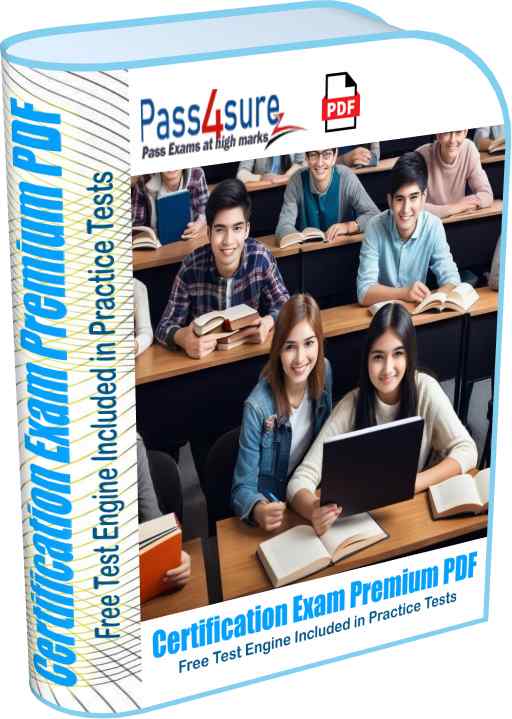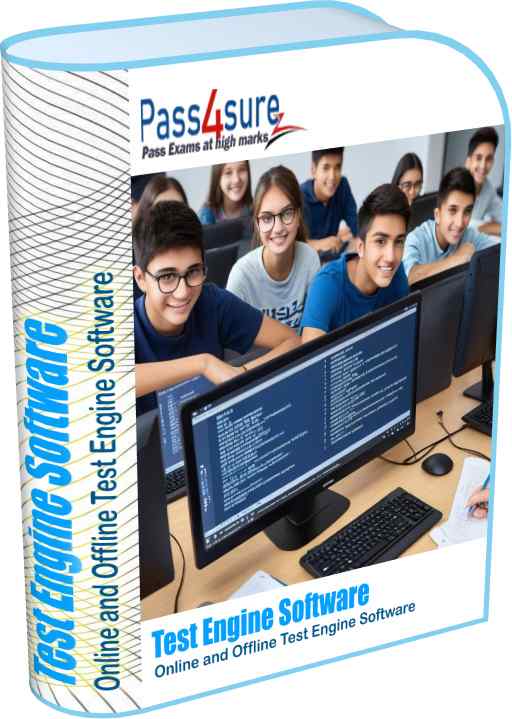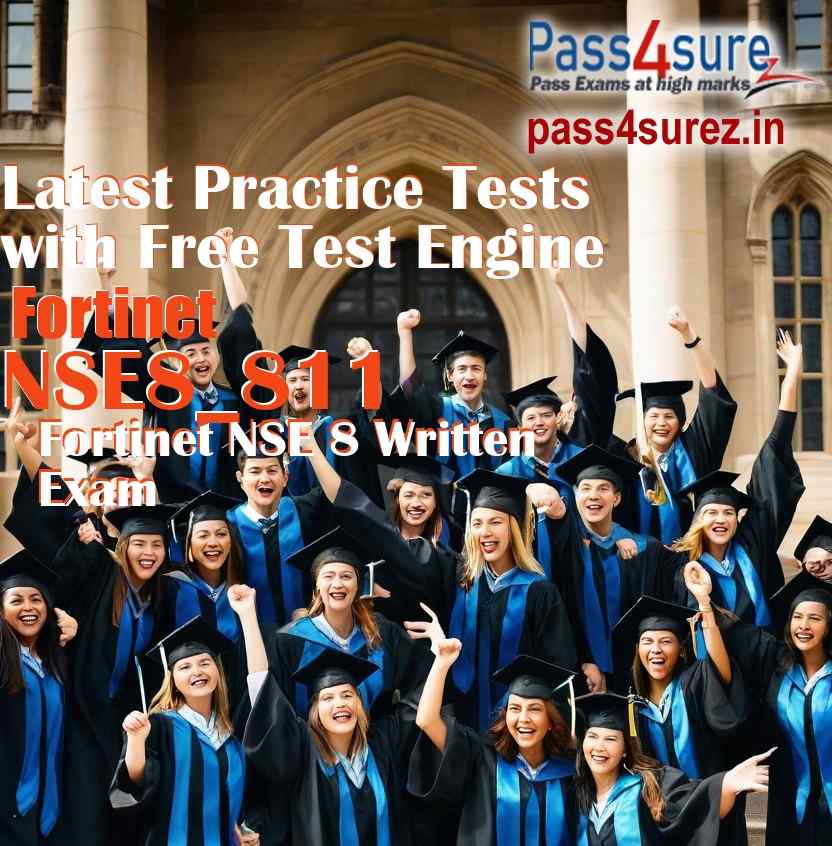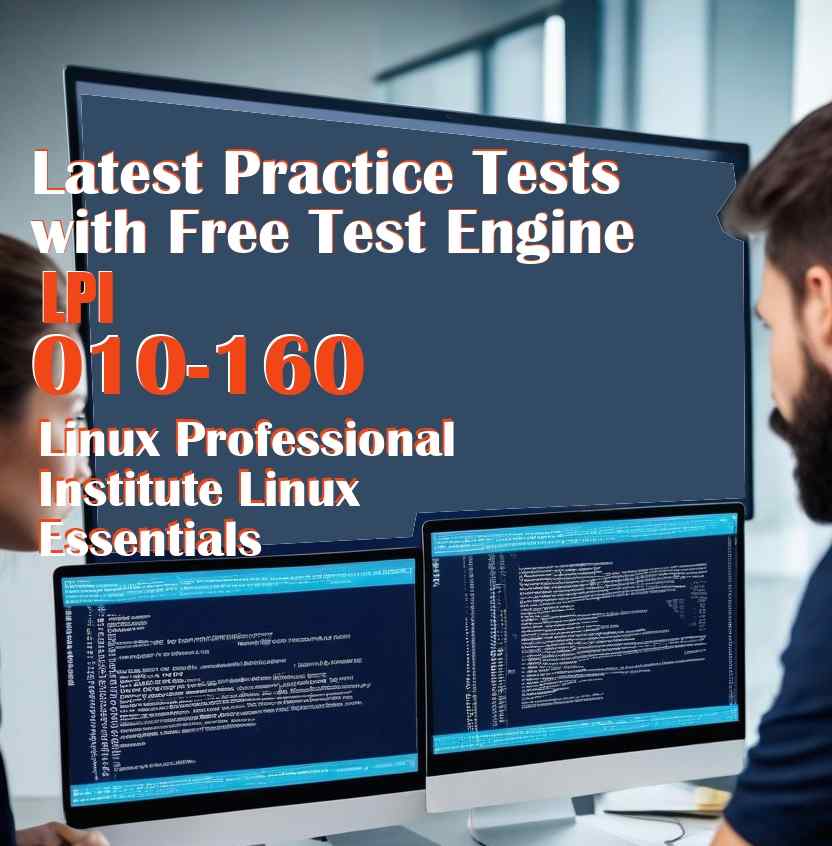| Exam Code | 010-160 |
| Questions and Answers | 126 |
| Premium Access | Yes |
| Online Test Engine | Yes |
| Comprehensive Q&A | Yes |
| Success Rate | 98% |
| Real Questions | Yes |
| Updated Regularly | Yes |
| Portable Files | ✔ |
| Unlimited Download | ✔ |
| 100% Secured | ✔ |
| Confidentiality | 100% |
| Success Guarantee | 100% |
| Any Hidden Cost | $0.00 |
| Auto Recharge | No |
| Updates Intimation | by Email |
| Technical Support | Free |
| PDF Compatibility | Windows, Android, iOS, Linux |
| Test Engine Compatibility | Mac/Windows/Android/iOS/Linux |
| Sample Questions |  |
Pass4sure Practice Tests are an effective way to prepare for the 010-160 exam. The practice tests include premium PDF and Test Engine Software. Pass4surez.in provides an extensive question bank to improve your knowledge and help you achieve high marks on the 010-160 exam.
The Linux Professional Institute Linux Essentials exam questions and answers on Pass4surez.in are regularly verified and updated to ensure they reflect the latest syllabus and topics covered in the real test. The certification exams and entry test exams from pass4surez.com make you familiar with the test environment. The goal is to enhance your knowledge of the 010-160 exam and enable you to pass it on your first attempt.
The PDF of 010-160 exam questions and answers provided by Pass4surez.in contains a comprehensive pool of questions and verified answers, including references and explanations where applicable. The objective is not only to help you pass the exam, but also to significantly improve your knowledge of the latest 010-160 course topics.
 |
|
CERTIFICATION EXAM PREMIUM PDF
Pass4Sure provide premium PDF that contains all the questions and answers that are necessary to make your concepts about the exam topics clear and boost your knowledge about the exam. These questions and answers make you ready to face actual test in test centers. Our team keep on revising material and update the exam questions accordingly. You will feel confident in test center. Our support team keep on helping our customers to make their testing experience best. Our premium PDF files are searchable, convertable and printable at high quality to make book that you can study during traveling or during vacations. Our automated system sends intimation email to our customers on each update. The files in customer download section is overwritten with latest pdf files.
|
| |
|
 |
|
CERTIFICATION EXAM TEST ENGINE
Pass4sure test engine is best certification and examination preparation tool that help you make yourself ready to take the actual exam and get high marks in the exam. Our OTE (Online Test Engine) support all OS Platforms including iOS, Android, Windows, Linux, Chromebook etc and provide up to date experience to get ready for actual test. Our Offline Test Engine is compatible to all windows platforms including latest windows versions. Our test engines helps to familiarize actual test environment and makes you ready to take timed tests. Your performance history and graphs helps you to see when you are ready to sit in actual exam in test center. These test engines uses up to date and latest questions and answers, keeps on updating the questions pool and sends you intimation on each update.
|
Pass4sure Premium PDF and Test Engines support all platforms and devices including mobile devices and computers. You should download sample PDF and Test Engine to evaluate the product before you buy the full version. Our exam samples include some questions that may be or may not be up to date but full version is always up to date.
Exam Title :
LPI Linux Essentials
Exam ID :
010-160
Exam Duration :
60 mins
Questions in Exam :
40
Passing Score :
500 / 800
Exam Center :
LPI Marketplace
Real Questions :
LPI Linux Essentials Real Questions
VCE Practice Test :
LPI 010-160 Certification VCE Practice Test
Topic 1: The Linux Community and a Career in Open Source
1.1 Linux Evolution and Popular Operating Systems
Description: Knowledge of Linux development and major distributions.
Key Knowledge Areas:
Distributions
Embedded Systems
Linux in the Cloud
The following is a partial list of the used files, terms and utilities:
Debian, Ubuntu (LTS)
CentOS, openSUSE, Red Hat, SUSE
Linux Mint, Scientific Linux
Raspberry Pi, Raspbian
Android
1.2 Major Open Source Applications
Description: Awareness of major applications as well as their uses and development.
Key Knowledge Areas:
Desktop applications
Server applications
Development languages
Package management tools and repositories
The following is a partial list of the used files, terms and utilities:
OpenOffice.org, LibreOffice, Thunderbird, Firefox, GIMP
Nextcloud, ownCloud
Apache HTTPD, NGINX, MariaDB, MySQL, NFS, Samba
C, Java, JavaScript, Perl, shell, Python, PHP
dpkg, apt-get, rpm, yum
1.3 Open Source Software and Licensing
Description: Open communities and licensing Open Source Software for business.
Key Knowledge Areas:
Open source philosophy
Open source licensing
Free Software Foundation (FSF), Open Source Initiative (OSI)
The following is a partial list of the used files, terms and utilities:
Copyleft, Permissive
GPL, BSD, Creative Commons
Free Software, Open Source Software, FOSS, FLOSS
Open source business models
1.4 ICT Skills and Working in Linux
Description: Basic Information and Communication Technology (ICT) skills and working in Linux.
Key Knowledge Areas:
Desktop skills
Getting to the command line
Industry uses of Linux, cloud computing and virtualization
The following is a partial list of the used files, terms and utilities:
Using a browser, privacy concerns, configuration options, searching the web and saving content
Terminal and console
Password issues
Privacy issues and tools
Use of common open source applications in presentations and projects
Topic 2: Finding Your Way on a Linux System
2.1 Command Line Basics
Description: Basics of using the Linux command line.
Key Knowledge Areas:
Basic shell
Command line syntax
Variables
Quoting
The following is a partial list of the used files, terms and utilities:
Bash
echo
history
PATH environment variable
export
type
2.2 Using the Command Line to Get Help
Description: Running help commands and navigation of the various help systems.
Key Knowledge Areas:
Man pages
Info pages
The following is a partial list of the used files, terms and utilities:
man
info
/usr/share/doc/
locate
2.3 Using Directories and Listing Files
Description: Navigation of home and system directories and listing files in various locations.
Key Knowledge Areas:
Files, directories
Hidden files and directories
Home directories
Absolute and relative paths
The following is a partial list of the used files, terms and utilities:
Common options for ls
Recursive listings
cd
. and ..
home and ~
2.4 Creating, Moving and Deleting Files
Description: Create, move and delete files and directories under the home directory.
Key Knowledge Areas:
Files and directories
Case sensitivity
Simple globbing
The following is a partial list of the used files, terms and utilities:
mv, cp, rm, touch
mkdir, rmdir
Topic 3: The Power of the Command Line
3.1 Archiving Files on the Command Line
Description: Archiving files in the user home directory.
Key Knowledge Areas:
Files, directories
Archives, compression
The following is a partial list of the used files, terms and utilities:
tar
Common tar options
gzip, bzip2, xz
zip, unzip
3.2 Searching and Extracting Data from Files
Description: Search and extract data from files in the home directory.
Key Knowledge Areas:
Command line pipes
I/O redirection
Basic Regular Expressions using ., [ ], *, and ?
The following is a partial list of the used files, terms and utilities:
grep
less
cat, head, tail
sort
cut
wc
3.3 Turning Commands into a Script
Weight: 4
Description: Turning repetitive commands into simple scripts.
Key Knowledge Areas:
Basic shell scripting
Awareness of common text editors (vi and nano)
The following is a partial list of the used files, terms and utilities:
#! (shebang)
/bin/bash
Variables
Arguments
for loops
echo
Exit status
Topic 4: The Linux Operating System
4.1 Choosing an Operating System
Weight: 1
Description: Knowledge of major operating systems and Linux distributions.
Key Knowledge Areas:
Differences between Windows, OS X and Linux
Distribution life cycle management
The following is a partial list of the used files, terms and utilities:
GUI versus command line, desktop configuration
Maintenance cycles, beta and stable
4.2 Understanding Computer Hardware
Weight: 2
Description: Familiarity with the components that go into building desktop and server computers.
Key Knowledge Areas:
Hardware
The following is a partial list of the used files, terms and utilities:
Motherboards, processors, power supplies, optical drives, peripherals
Hard drives, solid state disks and partitions, /dev/sd*
Drivers
4.3 Where Data is Stored
Weight: 3
Description: Where various types of information are stored on a Linux system.
Key Knowledge Areas:
Programs and configuration
Processes
Memory addresses
System messaging
Logging
The following is a partial list of the used files, terms and utilities:
ps, top, free
syslog, dmesg
/etc/, /var/log/
/boot/, /proc/, /dev/, /sys/
4.4 Your Computer on the Network
Weight: 2
Description: Querying vital networking configuration and determining the basic requirements for a computer on a Local Area Network (LAN).
Key Knowledge Areas:
Internet, network, routers
Querying DNS client configuration
Querying network configuration
The following is a partial list of the used files, terms and utilities:
route, ip route show
ifconfig, ip addr show
netstat, ss
/etc/resolv.conf, /etc/hosts
IPv4, IPv6
ping
host
Topic 5: Security and File Permissions
5.1 Basic Security and Identifying User Types
Weight: 2
Description: Various types of users on a Linux system.
Key Knowledge Areas:
Root and standard users
System users
The following is a partial list of the used files, terms and utilities:
/etc/passwd, /etc/shadow, /etc/group
id, last, who, w
sudo, su
5.2 Creating Users and Groups
Weight: 2
Description: Creating users and groups on a Linux system.
Key Knowledge Areas:
User and group commands
User IDs
The following is a partial list of the used files, terms and utilities:
/etc/passwd, /etc/shadow, /etc/group, /etc/skel/
useradd, groupadd
passwd
5.3 Managing File Permissions and Ownership
Weight: 2
Description: Understanding and manipulating file permissions and ownership settings.
Key Knowledge Areas:
File and directory permissions and ownership
The following is a partial list of the used files, terms and utilities:
ls -l, ls -a
chmod, chown
5.4 Special Directories and Files
Weight: 1
Description: Special directories and files on a Linux system including special permissions.
Key Knowledge Areas:
Using temporary files and directories
Symbolic links
The following is a partial list of the used files, terms and utilities:
/tmp/, /var/tmp/ and Sticky Bit
ls -d
ln -s
You can download a free PDF of the 010-160 practice test and study guide to try before purchasing the premium files. To ace the exam, simply download the 010-160 exam questions and answers file, memorize the content, and practice with the VCE Exam Simulator. This will ensure you are fully prepared for the real test.
The 010-160 PDF practice test and exam questions and answers can be accessed on any device, including iPhone, iPad, Android, and Windows. You can download the PDF to your computer or any other device and start studying. Additionally, you can download and install the VCE Exam Simulator for further practice. The 010-160 PDF is printable in high quality, allowing you to take it with you on vacations or while traveling. Your updated 010-160 exam files can be accessed anytime from your online account, and you will receive your login credentials immediately after purchase.


